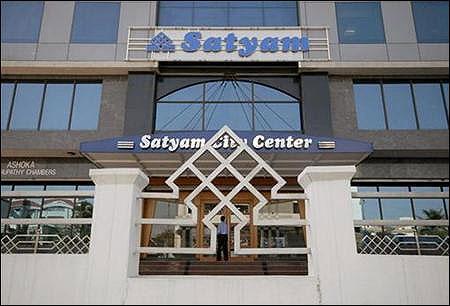Dilip James
Satyam, Subhiksha, Lilliput, Reebok, Everonn, Onmobile. Wondering what they have in common? These were extremely successful companies set up by new-generation professionals, who combined domain knowledge, passion and entrepreneurial nous to make them the envy of their peers.
Satyam had a spectacular initial public offering and was once among the most valuable companies in India. Some others raised funding at significant valuations and another is the local subsidiary of a multinational. The entrepreneurs or professionals in control of these companies became enormously wealthy on account of their shareholding and were also paid handsomely.
Yet all of them flamed out, mired in what appears to be financial wrongdoings, unethical behaviour and poor governance. The very same entrepreneurs and professionals responsible for success were seemingly complicit in these actions.
These are names in the public domain but across corporate India there seem to be many such companies whose stories have either not been told or garnered the media's attention.
Click on NEXT for more...
Bad old ways of modern-day entrepreneurs
Photographs: Krishnendu Halder/Reuters
Is it not paradoxical to see behaviour from these modern-day entrepreneurs or professionals (for lack of a common terminology I will loosely refer to all of them as "founders") reminiscent of old-era business India?
Typically, during an era of punishing high taxes and restrictive business environments, the controlling families created value for themselves by diverting cash from their companies.
But the business environment is far more liberalised and the tax environment is much more benign. What must lie at the root of such behaviour by these new-generation founders? Is there something cultural in the way we treat the fine line that should divide companies' wealth from that which belongs to one set of shareholders or management?
Over the course of my interactions with traditional Indian corporate groups, new-generation entrepreneurs and professionals managing multinationals, I have observed some common traits that could point to why even new-generation founders sometimes behave like their old-generation counterparts.
At the core is an overriding societal truth: those indulging in unethical white-collar actions believe the legal process is so time-consuming and apparently manageable, particularly at lower levels, that the risk-reward equation favours the one collecting the reward.
Click on NEXT for more...
Bad old ways of modern-day entrepreneurs
The first corporate trait is what I will term as "romantic oversight". Those responsible for providing governance and ethical oversight, whether it is the board or supervisory committee and so on, are either besotted or in awe of the founders and end up romanticising their actions even when they are open to question.
These boards and committees are also composed of people related or beholden to the founders. Even where this is not the case, when the first whiff of a problem appears, it is doused by the "shower" provided by the founders.
I have heard numerous boardroom exchanges where the path of non-confrontation is recommended, with homilies like "the business is on steroids and we don't want to demotivate him" or "there are business challenges to fix and we should not divert attention by bringing up these matters" and so on.
Over time, the founders figure out this game. So, they blindside the board by bringing dazzling business plans, proposing large capital spends, inorganic growth options and so on that have hidden triggers for their benefit.
This is more the case with business segments in which there is excess availability of private capital, given their incessant focus on and single-minded drive for business results.
Click on NEXT for more...
Bad old ways of modern-day entrepreneurs
The next trait I think is uniquely Indian and that is the ambiguity when it comes to wealth and one's right to its ownership. Maybe there is something cultural in this, too, given the rather compromised society in which we live and I will term it the "joint family syndrome".
In a joint family, the patriarch has absolute power and sometimes even control over the assets of the family, independent of which family member may have created it. Many of our founders seem to suffer from this illusion with respect to the wealth of their companies, even though they are often only part-shareholders in their companies.
We also live in a society in which compromise with authorities to obtain even what is our legitimate right - whether it is a building plan licence, tax assessment and so on - is the norm, a practice that becomes even more numerous and routine for those in business.
Maybe this blurs the consciousness, so that giving and taking are considered two sides of the same coin, furthering the illusion in the minds of the founders regarding their right to their companies' wealth.
In particular, when the business environment gets challenging and the time lines for building value in business appear long, founders see no dichotomy in taking the quicker and easy route to extracting value for themselves, even though it is detrimental to the company.
Click on NEXT for more...
Bad old ways of modern-day entrepreneurs
The other issue is the fact that role models and leaders are almost non-existent, whether it is in the political or business space, which has not seen another Narayana Murthy for a long time.
We endlessly debate the gaps in our higher education system but what is the cause for our society not creating visible role models in any sphere? In the mid-90s, I had the opportunity to interact with a highly respected former chairman of the State Bank of India who served on the board of a company with which I was associated.
He used to share numerous gems of wisdom and once said to me: "Remember, in India we have only bankrupt industries and not industrialists." Alas, 20 years later the landscape, contrary to expectations, does not seem refreshingly different.
The author is a Bangalore-based independent corporate advisor







article